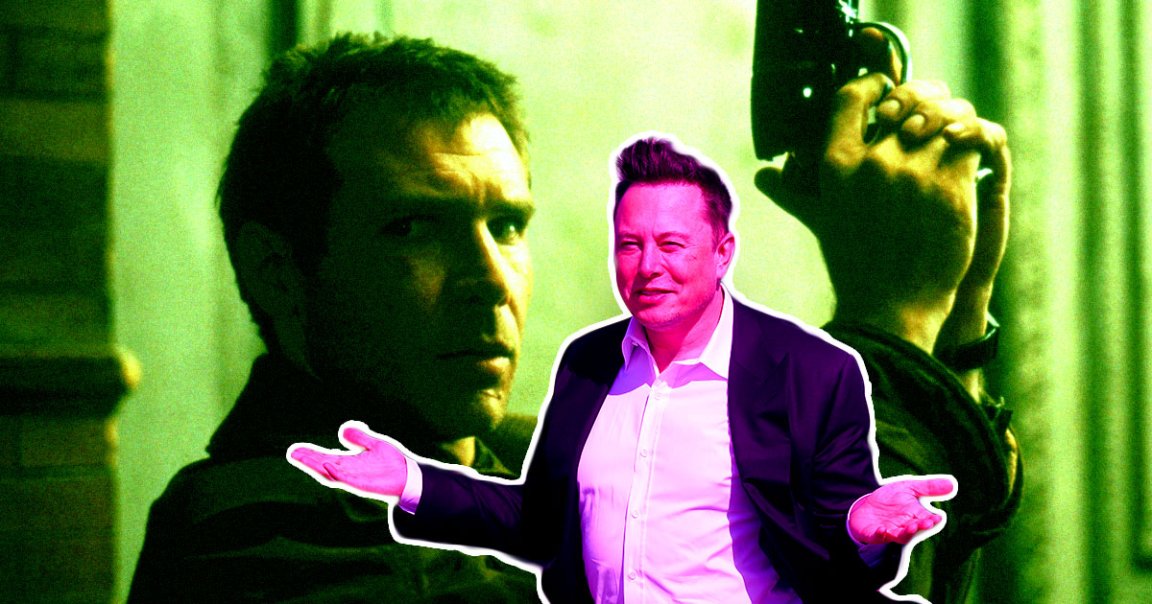
Tesla CEO Elon Musk has clearly ruffled some feathers on his own social media platform by claiming that “Bladerunner,” a character that never existed, “would have driven” one of his EV maker’s upcoming Cybertrucks.
To spell out the obvious, there never was a character named “Bladerunner” in Ridley Scott’s 1982 cyberpunk film — or “Blade Runner,” for that matter. The term refers to what essentially amounts to a job of somebody who “retires” the androids known as “replicants” in the movie.
The mixup led many to question whether Musk has ever even seen the movie — along with plenty of memes and mockery.
“When you’ve totally seen the movie Bladerunner featuring the character ‘Bladerunner,'” writer Casey Stegman wrote in a tongue-in-cheek tweet.
“Oh my fucking god,” fumed an enraged X user. “Does he think it’s called blade runner cuz the guy’s name is blade runner?”
“My favorite part of Blade Runner is when the main character, John Bladerunner, ran over all those blades,” one Reddit user offered.
Other users took aim at the highly divisive design of the pickup truck.
For instance, one pointed out that the protagonist in the original “Blade Runner,” a former police officer named Rick Deckard, who was played by Harrison Ford, “did drive a car which could fly, was safe, and didn’t look like dogshit.” Tough but fair!
It’s a bizarre misunderstanding that paints Musk’s attempts to conjure 1980s dystopian sci-fi as nothing more than a shallow marketing tactic, rather than a genuine portrayal of his purported love for the genre.
And it’s not just “Blade Runner” that Musk may be willfully or unknowingly misinterpreting. As the New Yorker pointed out in a recent feature on the new Musk biography by Walter Isaacson, the entrepreneur appears to have fundamentally misunderstood the message of Douglas Adams’ “Hitchhiker’s Guide to the Galaxy,” another seminal piece of science fiction that he frequently references.
“I took from the book that we need to extend the scope of consciousness so that we are better able to ask the questions about the answer, which is the universe,” Musk told Isaacson in his book.
In reality, Adams’ book lampoons imperialism and the desire to build a better world reserved for a small, extremely wealthy subset of humanity — which, as it so happens, sounds a lot like Musk’s vision of colonizing other planets.
The novel is a sharp indictment of keyed up capitalism and colonialism, hallmarks of the future Musk is trying to bring about.
Ironically, Adams was a big critic of British imperialism and even had an “End Apartheid” sticker on his typewriter, a noteworthy reference point given the history of Musk’s family.
While we have no trouble believing that Musk may indeed have a penchant for science fiction — his desire to build a rocket company and colonize Mars wasn’t born in a vacuum — we do have serious doubts about his marketing tactics and perhaps reading comprehension.
Case in point is conjuring up “Blade Runner,” one of the most beloved films in the genre, while calling its main character by the wrong name. And it’s clear Musk’s brutalist pickup truck is a far cry from the film’s sleek, retro-futurist vehicles.
More on the faux-pas: Elon Musk Thinks the Main Character in “Blade Runner” Was Named “Bladerunner”